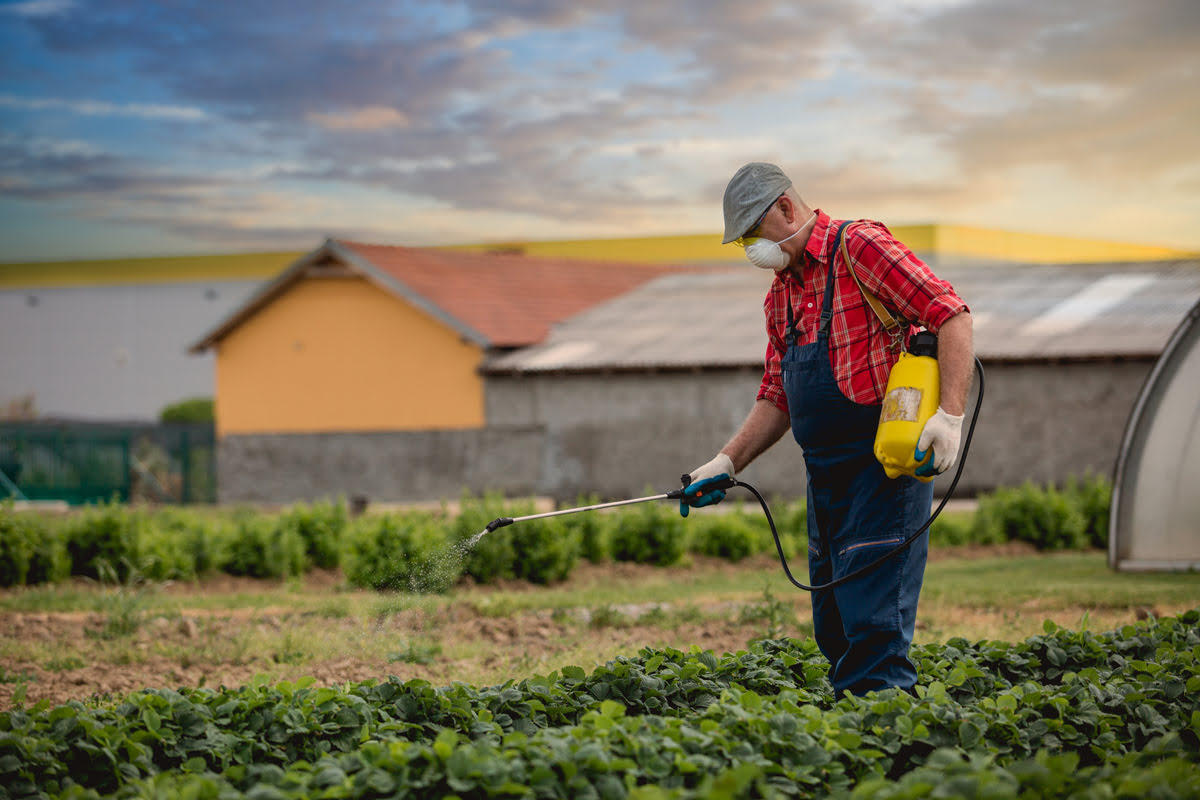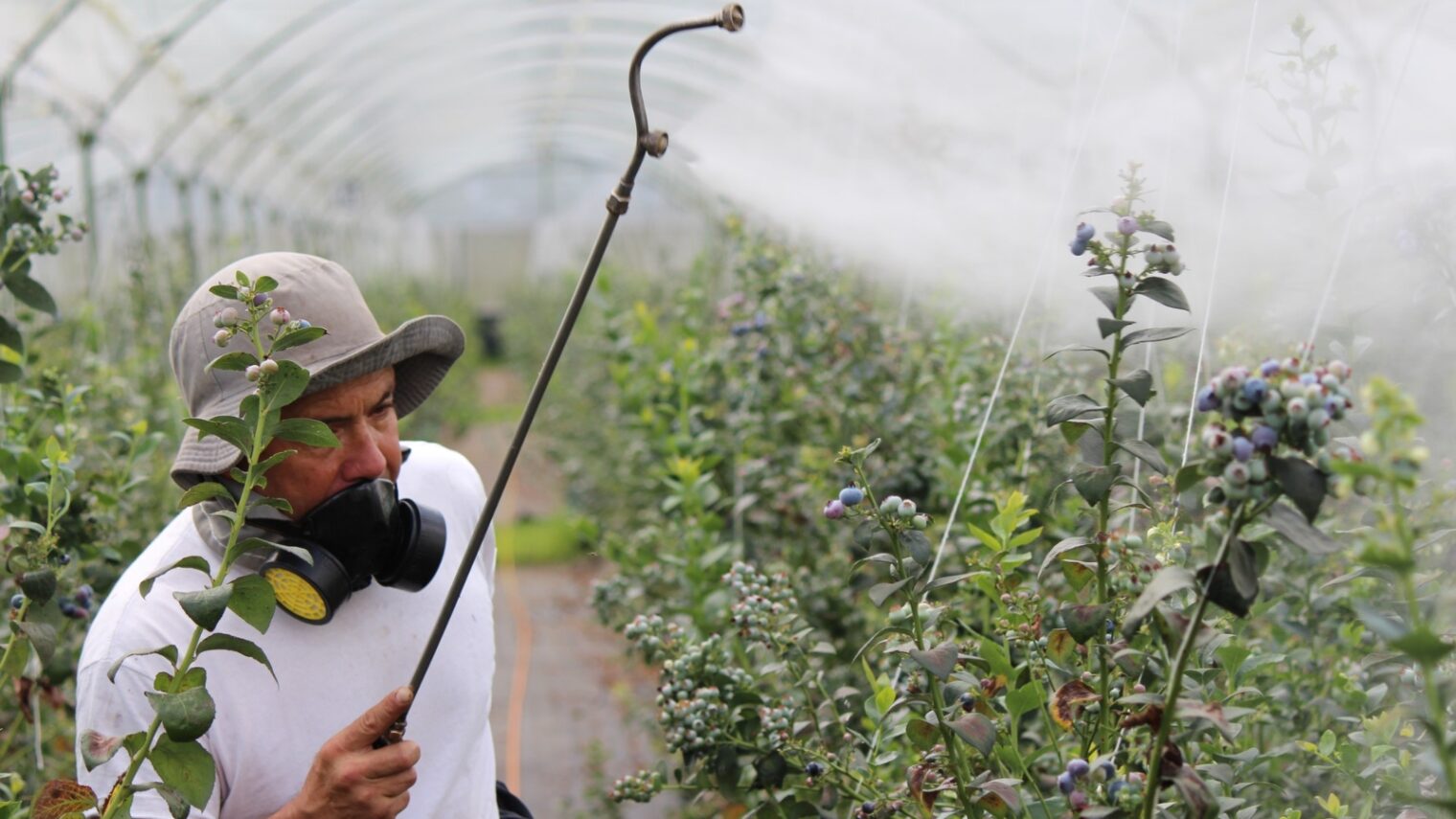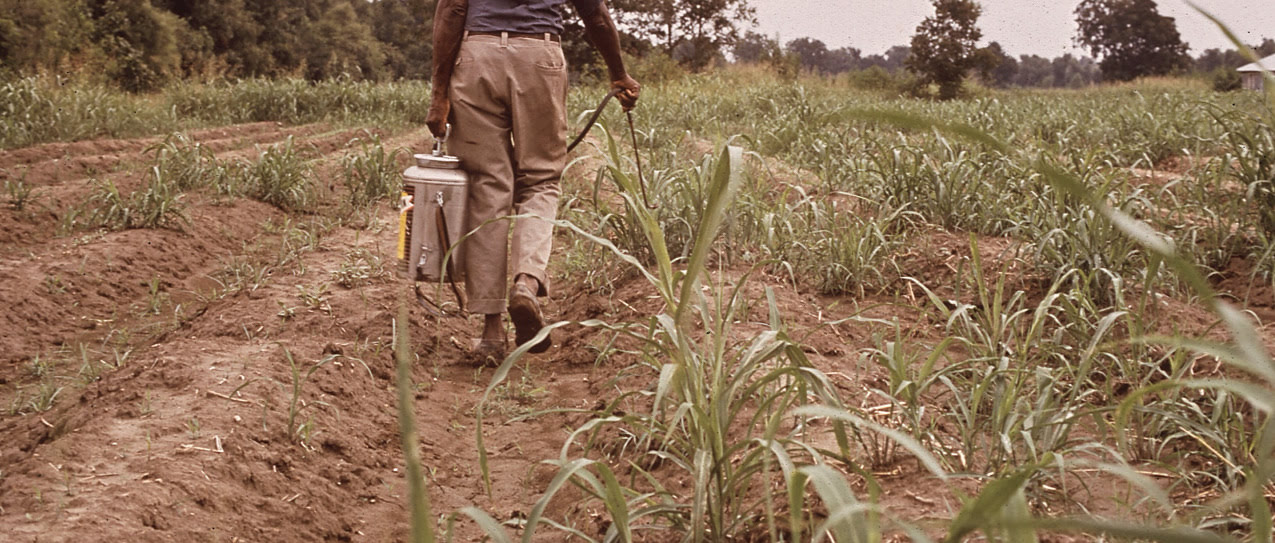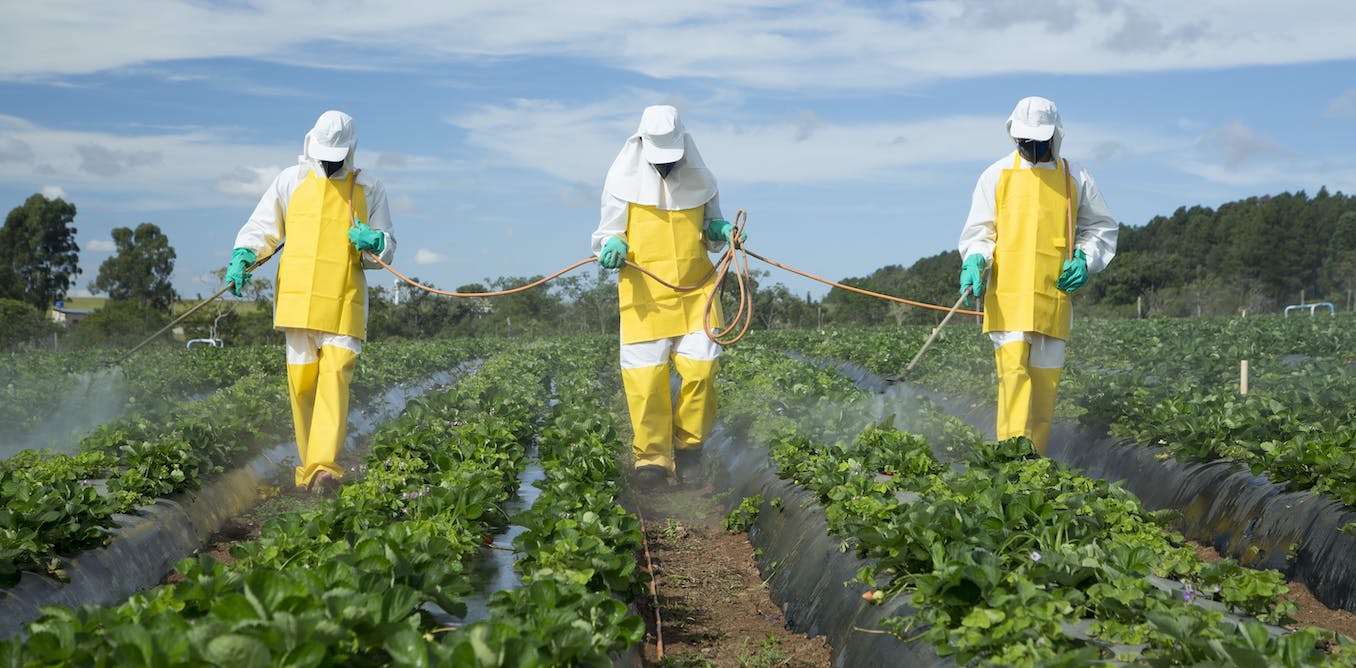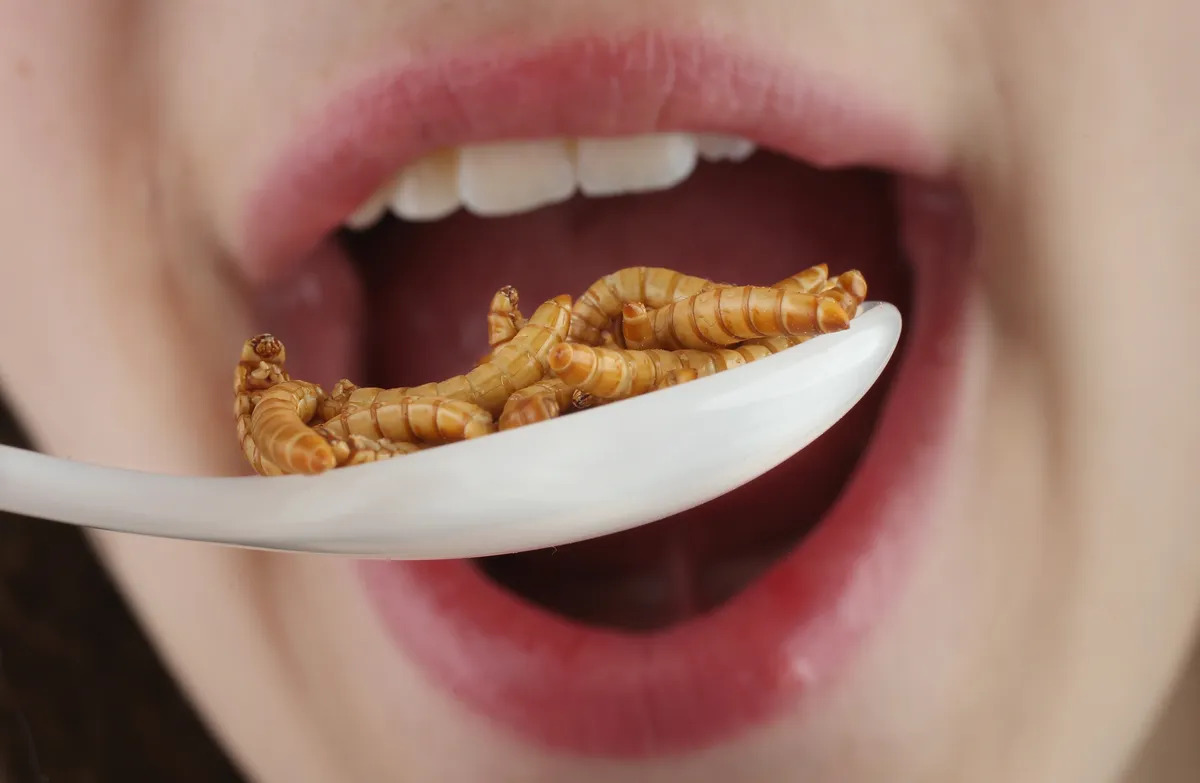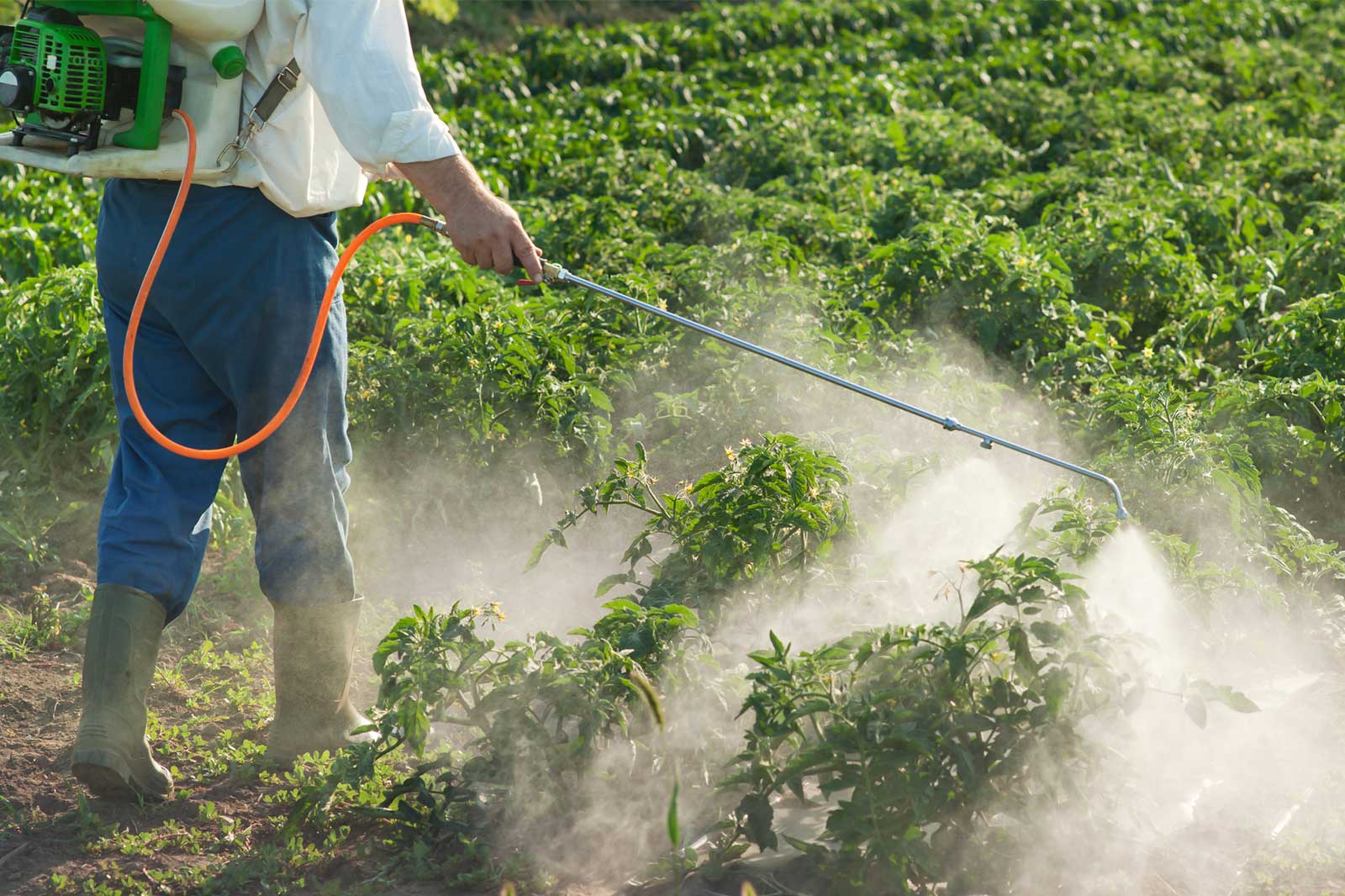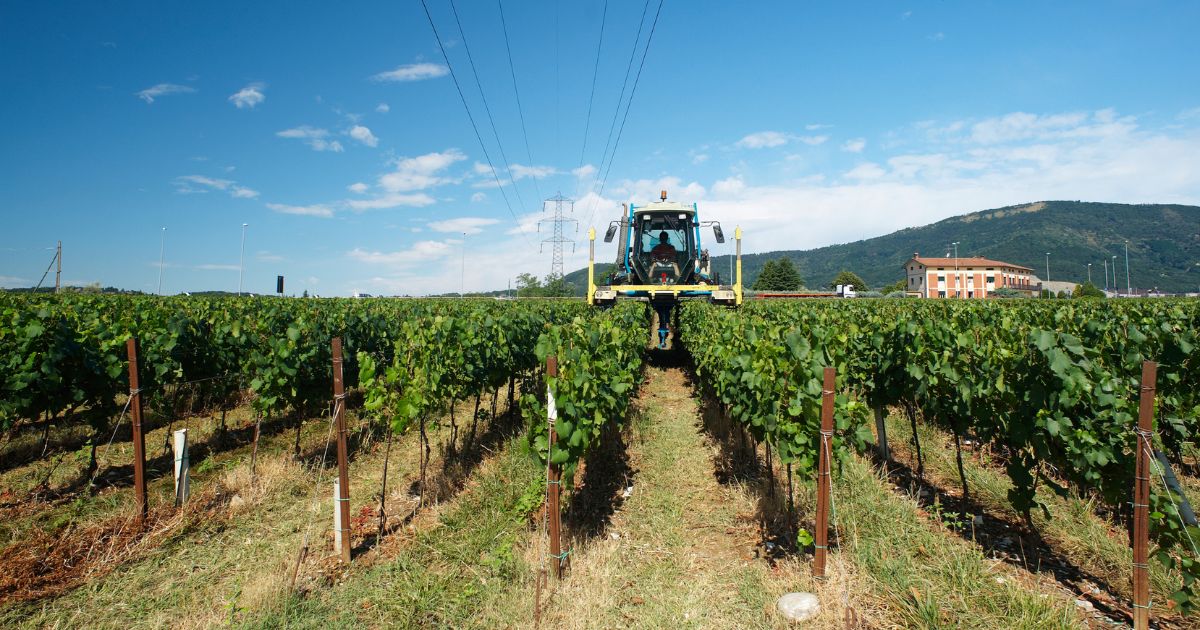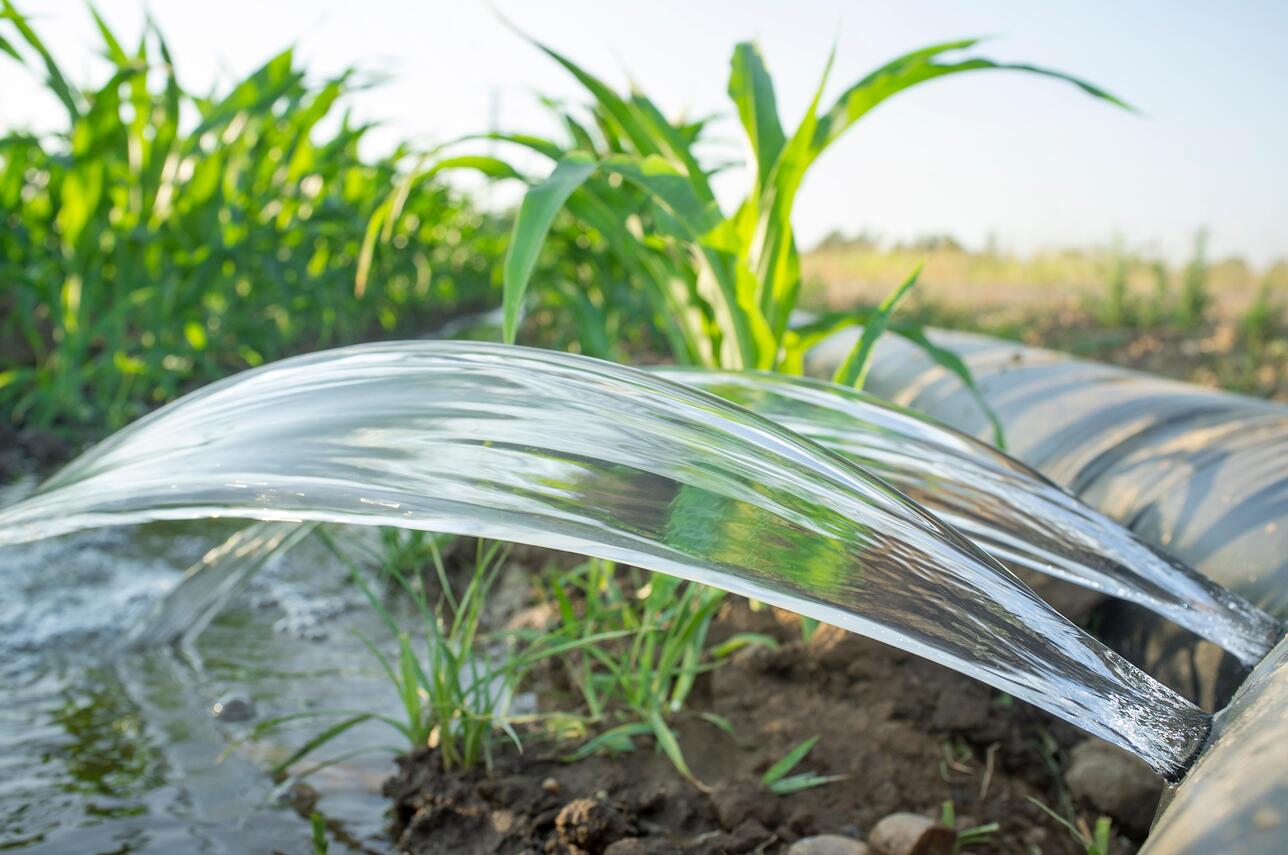Home>Gardening News and Trends>Latest News>Why Do We Need Pesticides
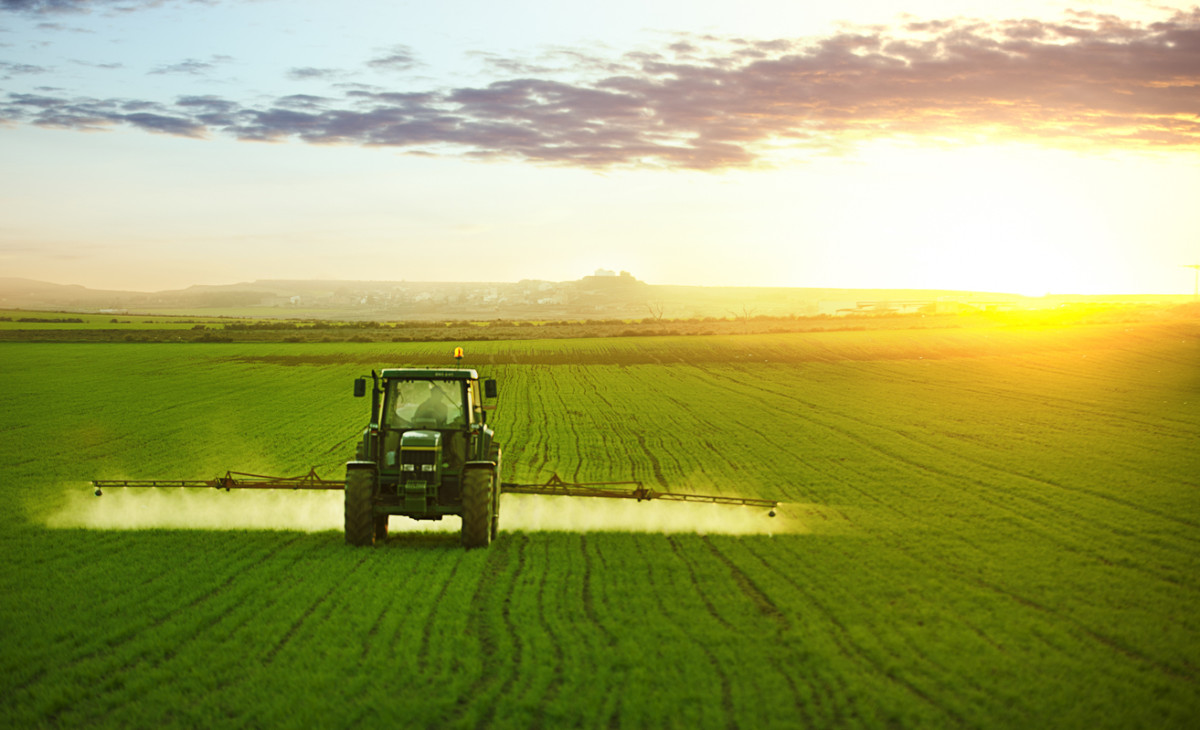

Latest News
Why Do We Need Pesticides
Published: November 27, 2023
Discover the latest news on why we need pesticides. Explore the benefits and concerns surrounding their use, and stay informed on the latest developments in this contentious issue.
(Many of the links in this article redirect to a specific reviewed product. Your purchase of these products through affiliate links helps to generate commission for Chicagolandgardening.com, at no extra cost. Learn more)
Table of Contents
Introduction
Pesticides are a critical component of modern agriculture, playing a crucial role in increasing crop yields and ensuring food security. These chemical substances are designed to control various pests, including insects, weeds, and diseases, that can have detrimental effects on crops. While the use of pesticides has been a topic of debate, there is no denying their importance in sustaining agricultural productivity and preventing substantial economic losses.
The primary purpose of pesticides is to protect crops from pests, which can inhibit plant growth, reduce yields, and spread diseases. Without effective pest control measures, farmers would struggle to produce enough food to meet the growing global demand. However, it is vital to strike a balance between the benefits pesticides provide and their potential impacts on the environment and human health.
Throughout this article, we will explore the significance of pesticides in agriculture, the impact they have on crop yields and public health, and the measures taken to regulate their use and mitigate environmental risks. By understanding the role that pesticides play in modern farming, we can appreciate the value they bring while promoting sustainable and responsible use.
Importance of Pesticides for Agriculture
Pesticides play a pivotal role in modern agriculture, contributing significantly to the success and productivity of the global food system. Here are some key reasons why pesticides are essential for agriculture:
- Increased Crop Yield: Pesticides help farmers protect their crops from pests and diseases, ensuring higher yields and better quality harvests. By controlling pests, pesticides prevent the destruction of crops, allowing for healthier and more abundant produce.
- Pest Control and Disease Prevention: Pests, such as insects, weeds, and fungi, can cause significant damage to crops if left unchecked. Pesticides provide effective control measures to minimize the impact of these pests, preventing the spread of diseases and infestations that can devastate agricultural fields.
- Reduction in Economic Losses: Without adequate pest control, farmers risk substantial economic losses due to damaged crops. Pesticides help protect the investment made in cultivating crops by reducing losses caused by pests, ultimately contributing to the financial stability of farmers.
- Ensuring Food Security: Pesticides have a crucial role in meeting the global food demand. By protecting crops from infestations and diseases, pesticides help ensure a stable and plentiful supply of food to feed growing populations. Without effective pest control measures, agricultural production would be severely hampered, leading to food shortages and increased food prices.
These factors highlight the importance of pesticides in agriculture, showcasing their role in increasing crop yields, preserving crop quality, and ensuring sufficient food production to meet the needs of a growing global population. However, it is crucial to balance the use of pesticides with sustainable and responsible practices to minimize potential negative impacts on the environment and human health.
Increased Crop Yield
One of the primary benefits of using pesticides in agriculture is the significant increase in crop yield. Pests, including insects, weeds, and diseases, can have a devastating impact on crops, leading to reduced productivity and lower-quality harvests. By effectively managing and controlling these pests, pesticides enable farmers to maximize their crop yields. Here’s how pesticides contribute to increased crop yields:
- Protection against Insect Damage: Insects, such as aphids, beetles, and caterpillars, can cause extensive damage to crops by feeding on leaves, stems, and fruits. Pesticides specifically formulated to target these insects can help reduce the infestation levels and minimize damage, allowing plants to grow and develop without significant hindrance.
- Control of Weed Competition: Weeds compete with crops for essential resources like water, nutrients, and sunlight. If left uncontrolled, weeds can overtake crops, leading to reduced yields. Herbicides, a type of pesticide designed to target weeds, can effectively suppress weed growth, ensuring that crops have access to the necessary resources for optimal growth.
- Prevention of Disease Outbreaks: Plant diseases can spread rapidly and cause severe damage to crops. Fungal, bacterial, and viral infections can lead to wilting, discoloration, reduced fruit set, and even plant death. Pesticides with disease-fighting properties help prevent and manage these outbreaks, protecting crops and enabling healthy growth.
- Enhanced Plant Health and Vigor: Pesticides contribute to the overall health and vigor of crops by reducing stress caused by pest infestations and diseases. By minimizing the impacts of pests, pesticides promote stronger and healthier plants, allowing them to allocate their resources towards growth, development, and yield production.
Through the effective control of pests, weeds, and diseases, pesticides create a favorable environment for crops to thrive and reach their full potential. With increased crop yield, farmers can meet the escalating demands of a growing population and contribute to global food security. However, it is important to note that proper pesticide management practices, such as following recommended application rates and integrated pest management strategies, must be implemented to ensure optimal results and minimize any potential negative effects.
Pest Control and Disease Prevention
Pesticides are indispensable in agriculture for their ability to control pests and prevent the spread of diseases. Pests, including insects, weeds, and diseases, can cause significant damage to crops, leading to decreased yields and compromised plant health. Effective pest control and disease prevention are crucial for maintaining crop productivity and quality. Here’s how pesticides contribute to pest control and disease prevention in agriculture:
- Insect Control: Insects can cause severe damage to crops by feeding on plant leaves, stems, and fruits. Pesticides designed to target specific insect pests help control their population and minimize the damage they can cause. By applying insecticides, farmers can protect their crops from destructive insects and reduce economic losses.
- Weed Suppression: Weeds compete with crops for essential resources like water, sunlight, and nutrients, thereby compromising crop growth and development. Herbicides play a vital role in weed suppression by targeting and eliminating weeds without harming the desired crops. This helps maintain the health and productivity of agricultural fields.
- Disease Management: Plant diseases, caused by fungi, bacteria, viruses, and other pathogens, can spread rapidly and devastate crops. Pesticides with fungicidal, bactericidal, and virucidal properties help prevent and manage disease outbreaks. By controlling these pathogens, pesticides safeguard crop health, minimize yield losses, and maintain the overall quality of harvested produce.
- Integrated Pest Management (IPM): Pesticides are an integral part of Integrated Pest Management programs, which aim to manage pests in a sustainable and environmentally friendly way. By combining various pest control methods, including the targeted use of pesticides, crop rotation, biological control, and cultural practices, farmers can effectively control pests while minimizing the reliance on chemical inputs.
Pesticides have revolutionized pest control and disease prevention in agriculture, providing farmers with effective tools to protect their crops. They offer an efficient and practical solution to combat pests and prevent the spread of diseases, ultimately ensuring the productivity, quality, and profitability of agricultural operations. However, it is important to use pesticides judiciously, following appropriate guidelines and regulations, to minimize any potential risks to human health and the environment.
Reduction in Economic Losses
Pesticides play a crucial role in reducing economic losses in agriculture. Without effective pest control measures, farmers would face significant financial setbacks due to damaged crops and reduced yields. Pesticides provide essential benefits that help minimize economic losses and promote the financial stability of agricultural operations. Here are some key ways in which pesticides contribute to reducing economic losses:
- Preventing Crop Damage: Pests, including insects, weeds, and diseases, can cause extensive damage to crops if left uncontrolled. They can devour leaves, stems, and fruits, leading to reduced yields and compromised crop quality. Pesticides specifically formulated to target these pests help prevent crop damage, allowing farmers to protect their investment and maximize their potential profits.
- Minimizing Yield Losses: High pest infestations can lead to significant yield losses in agricultural fields. Pesticides help reduce pest populations and control their damage, ensuring that crops can reach their full yield potential. By minimizing yield losses, farmers can maintain a consistent and profitable supply of crops for the market.
- Improving Crop Quality: Pests and diseases can not only reduce crop yields but also diminish the quality of harvested produce. Pesticides play a vital role in preserving the quality of agricultural products by protecting them from external damage. This ensures that farmers can offer high-quality, marketable crops that fetch better prices and consumer satisfaction.
- Enhancing Marketability: Pesticides help farmers produce crops that meet the regulatory standards and quality specifications demanded by the market. By ensuring the visual appeal and health of crops, pesticides contribute to enhanced marketability, enabling farmers to secure better prices and business opportunities.
By reducing economic losses, pesticides contribute to the overall profitability and sustainability of agricultural operations. They enable farmers to protect their crops, maximize yields, maintain crop quality, and meet market demands. However, it is crucial to use pesticides responsibly, adhering to recommended application practices and safety guidelines, to minimize any potential risks and ensure the long-term viability of agricultural practices.
Ensuring Food Security
Pesticides play a vital role in ensuring food security by safeguarding crop production and maintaining a stable food supply. As the global population continues to grow, the demand for food increases, making it imperative to maximize agricultural output. Pesticides contribute significantly to achieving food security in the following ways:
- Preserving Crop Yield: Pests, diseases, and weeds can severely impact crop yields, leading to potential food shortages. Pesticides help control these challenges, enabling farmers to protect their crops and maximize yields. By minimizing losses caused by pests and diseases, pesticides contribute to a stable and abundant food supply.
- Preventing Crop Losses: Without effective pest control measures, crops can experience significant damage, resulting in substantial economic losses and reduced food availability. Pesticides provide an essential tool for farmers to prevent crop losses caused by pests, preserving the quantity and quality of harvested produce.
- Minimizing Food Waste: Pests and diseases can render crops unfit for consumption or marketable purposes. By managing these threats with pesticides, the chances of crop rejection due to infestation or disease damage are greatly reduced. This helps minimize food waste along the supply chain, ensuring that more crops reach consumers’ plates.
- Promoting Agricultural Efficiency: Pesticides help farmers optimize their agricultural practices by protecting crops and enhancing their productivity. This allows for more efficient land and resource utilization, leading to higher yields and increased food production. By maximizing efficiency, pesticides help meet food demands without the need for increased land expansion.
Food security is a critical global concern, and without the use of pesticides, meeting the nutritional needs of the growing population would be challenging. Pesticides enable farmers to produce sufficient, safe, and nutritious food to feed communities and ensure their well-being. However, it is crucial to adopt integrated pest management practices and sustainable agriculture approaches that combine the responsible use of pesticides with other methods, such as crop rotation and biological control, to minimize potential environmental risks and promote long-term food security.
Pesticides and Public Health
Pesticides have undeniable benefits in agriculture, but it is essential to address their potential impacts on public health. While pesticides contribute to increased crop yields and food security, improper handling or excessive use can have adverse effects on human health. It is crucial to strike a balance between the benefits of pesticides and their potential risks. Here are some key considerations regarding pesticides and public health:
- Exposure Risks: Pesticide exposure can occur through direct contact with chemicals, inhalation of sprays or vapors, or consumption of contaminated food and water. Prolonged or excessive exposure to certain pesticides can have harmful effects on human health, including acute and chronic toxicity, respiratory issues, skin irritations, and potential long-term health risks.
- Protective Measures: To minimize the risks associated with pesticide use, it is essential to follow safety guidelines and adopt protective measures. This includes using appropriate personal protective equipment, following proper application techniques, and adhering to recommended waiting periods before harvesting or entering treated areas.
- Regulation and Safety Measures: Governments and regulatory agencies play a crucial role in establishing safety standards and guidelines for pesticide use. These regulations aim to protect public health by ensuring that only approved pesticides are used, and that their application is done in a safe and controlled manner.
- Training and Education: Proper training and education for farmers and pesticide applicators are essential in promoting safe and responsible use of pesticides. This includes understanding the potential risks associated with pesticide use, proper handling and storage practices, and the importance of using recommended dosages and application methods.
- Alternative Approaches: Integrated pest management (IPM) practices promote the use of sustainable and environmentally friendly methods to manage pests, reducing reliance on pesticides. This approach incorporates techniques like biological control, crop rotation, and cultural practices to minimize the use of chemical pesticides while maintaining effective pest control.
Pesticides are valuable tools in agriculture, but their potential impacts on public health should not be ignored. By adopting responsible pesticide management practices, following safety regulations, providing proper training, and exploring alternative pest control methods, we can mitigate potential risks and promote a healthier balance between agricultural productivity and human well-being.
Regulation and Safety Measures for Pesticide Use
Given the potential risks associated with pesticide use, strict regulations and safety measures are in place to protect human health and the environment. These regulations ensure that pesticides are used responsibly and that the risks associated with their use are minimized. Here are key aspects of the regulation and safety measures for pesticide use:
- Registration and Approval: Before a pesticide can be sold or used, it must undergo a rigorous registration process. Regulatory agencies evaluate the efficacy and safety data provided by the manufacturer to determine whether the pesticide meets the required standards. Only approved pesticides can be legally marketed and applied.
- Safety Data Sheets (SDS): Pesticide manufacturers are required to provide Safety Data Sheets that contain detailed information on the product’s composition, potential hazards, and appropriate handling and storage procedures. These sheets serve as important references for users to understand the risks associated with the pesticide and take necessary safety precautions.
- Labeling and Instructions: Pesticide labels provide important information regarding the approved uses, application rates, target pests, safety precautions, and disposal instructions. Users must carefully read and follow the instructions on the label to ensure the safe and effective use of pesticides.
- Integrated Pest Management (IPM): IPM is a holistic approach that combines various strategies to manage pests effectively while minimizing reliance on chemical pesticides. Many regulatory agencies encourage and promote the adoption of IPM practices as part of pesticide management programs.
- Buffer Zones: Buffer zones are designated areas around treated fields where access is restricted. These zones help prevent unintended exposure to pesticides and minimize the risk of contamination of adjacent areas, such as water bodies or residential areas.
- Training and Certification: Many countries require pesticide applicators to undergo specific training and obtain certification to ensure that they are properly trained in handling, application, and safety practices. This helps improve the safe use of pesticides and reduce potential risks to the applicators and the environment.
Effective regulation and safety measures are vital for the responsible use of pesticides. They help protect human health, minimize environmental impacts, and ensure the safe and effective management of pests. It is important for users to familiarize themselves with local regulations and follow proper handling, application, and disposal procedures to safeguard their own well-being and that of the surrounding ecosystems.
Environmental Impact and Mitigation Strategies
Pesticides can have unintended environmental impacts, including contamination of soil, water bodies, and non-target organisms. To minimize these impacts and promote sustainable agricultural practices, several mitigation strategies have been developed. These strategies aim to reduce the adverse effects of pesticide use on the environment. Here are some key considerations regarding the environmental impact of pesticides and mitigation strategies:
- Environmental Monitoring: Regular monitoring of environmental factors, such as water quality, soil health, and biodiversity, helps assess the impact of pesticide use on ecosystems. Monitoring data is used to identify areas of concern and assess the effectiveness of mitigation strategies.
- Integrated Pest Management (IPM): IPM practices emphasize the use of non-chemical pest control methods as the primary means of managing pests. By incorporating techniques such as biological control, crop rotation, and habitat manipulation, farmers can reduce their reliance on pesticides and minimize their environmental impact.
- Targeted Application: Precision application techniques, such as using sprayers with controlled droplet sizes and spot treatment, help minimize the amount of pesticide used while maximizing target pest control. Targeted application reduces the risk of off-target contamination and reduces environmental exposure.
- Buffer Zones and No-Spray Areas: Buffer zones around sensitive areas, such as water bodies, protected wildlife habitats, and residential areas, help reduce the potential risk of pesticide drift and contamination. Establishing no-spray areas in close proximity to these sensitive areas further protects them from pesticide exposure.
- Pesticide Formulation and Innovation: Development and use of safer pesticide formulations, such as those with lower environmental persistence and reduced toxicity to non-target organisms, can help minimize the long-term impact on ecosystems.
- Proper Storage and Disposal: Proper storage and disposal of pesticides are essential to prevent accidental spills and reduce the risk of contamination. It is important to follow local regulations and guidelines for the safe handling, storage, and disposal of pesticide containers and excess product.
By implementing these mitigation strategies and adopting responsible pesticide management practices, the environmental impact of pesticide use can be minimized. Emphasizing sustainable agricultural practices, such as IPM, precision application, and proper storage and disposal, ensures a balance between pest control needs and environmental conservation.
Conclusion
Pesticides play a vital role in modern agriculture, contributing to increased crop yields, pest control, disease prevention, and ensuring food security. They protect crops from pests, weeds, and diseases, minimizing economic losses and preserving the quality of harvested produce. However, it is important to use pesticides responsibly and prioritize the health of both humans and the environment.
Regulations and safety measures are in place to ensure the responsible use of pesticides, including proper registration, labeling, and training requirements. Integrated Pest Management (IPM) practices further promote sustainable pest control methods that minimize reliance on chemical pesticides.
While pesticides offer significant benefits, they also pose potential risks to public health and the environment. Exposure to pesticides can have adverse effects on human health, necessitating the use of protective measures and adherence to safety guidelines. Environmental impacts, such as contamination of soil and water bodies, can be mitigated through monitoring, targeted application, buffer zones, and proper storage and disposal practices.
It is crucial to strike a balance between the benefits and risks associated with pesticide use. By adopting responsible pesticide management practices, including the integration of alternative pest control methods and regular monitoring, we can ensure the sustainable use of pesticides and promote a healthier and more environmentally friendly approach to agriculture.
